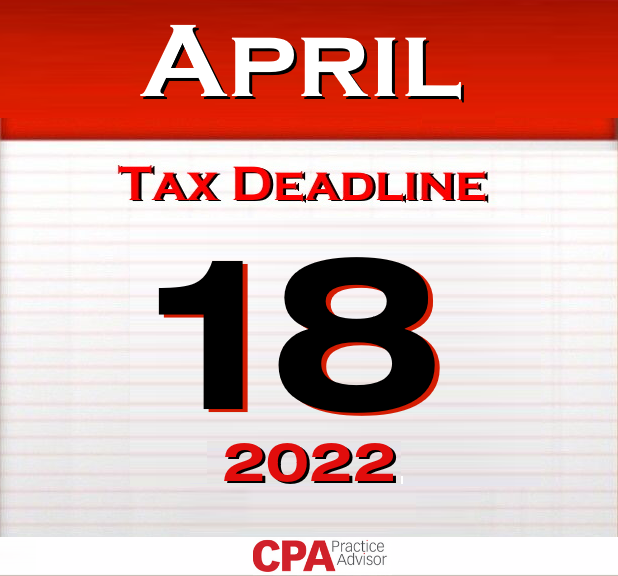Tax Day, April 18, 2022, is right around the corner. This is the deadline for filing your 2021 federal income tax return. The due date is extended from April 15 because of the Emancipation Day holiday in Washington D.C. (Tax Day is pushed back another day to April 19 in Maine and Massachusetts because of the Patriot’s Day holiday.)
But suppose you can’t get your records organized in time. For instance, you may be caught up in a family emergency, travel, a medical issue or other extenuating circumstances.
Practical advice: Don’t panic. If you need more time to file, you can apply for an extension from the IRS. All you have to do is file Form 4868, Application for Automatic Extension of Time to File U.S. Individual Income Tax Return. As the name in the form says, the extension is automatic—no questions asked by the IRS!
The automatic extension is good for up to six months. Therefore, if you obtain an extension, your new deadline for filing your 2021 return is October 17, 2022. (October 15 falls on a Saturday.)
This isn’t complicated. When you Form 4868, all you have to provide to the IRS are your name, address, Social Security number (SSN), your spouse’s SSN if married, and other tax information including an estimate of your tax liability for the year, the payments you’ve already made and the outstanding balance.
That’s right, you still have to make payments, if required. The extension is to file your tax return, not to pay the tax that is due. As a result, you must make a good faith estimate of the amount you owe Uncle Sam. To be safe, you should probably err on the high side. If it turns out that you’ve underpaid, you may be liable for interest and penalties in addition to the regular income tax that is due.
Alternatively, be aware of a couple of special rules that may provide a filing extension without filing Form 4868.
- If you’re a U.S. citizen or resident alien, you may be granted a two-month extension if you’re living outside the U.S. or Puerto Rice and your main place of business is outside the U.S. and Puerto Rico. Similar rules apply to taxpayers on military duty outside of the U.S. and Puerto Rico,
- If you’re serving in the armed forces in a combat zone or in a similar deployment, the filing deadline is generally extended for 180 days.
Finally, we’ve only discussed the federal tax return deadline to this point. If you are like most U.S. taxpayers, you must also file a state income tax return, generally by April 18. You can apply for a state tax filing extension, but the process may be slightly more complicated than the federal method. As with the federal extension, a state extension is for filing your return, not paying any tax liability.
If you still have any questions on either the federal or state levels, seek assistance from your professional tax advisor.
Thanks for reading CPA Practice Advisor!
Subscribe Already registered? Log In
Need more information? Read the FAQs




